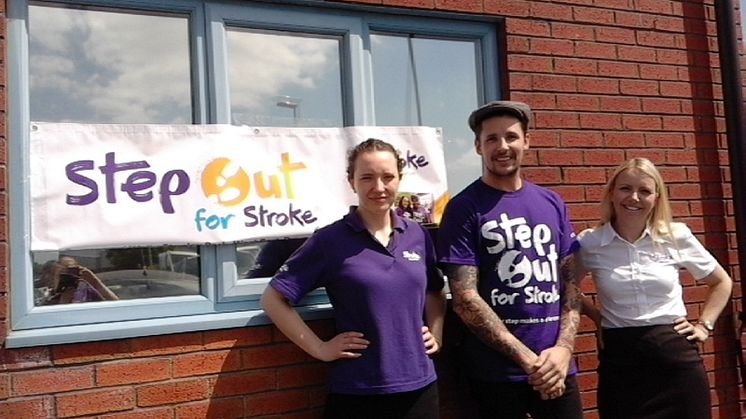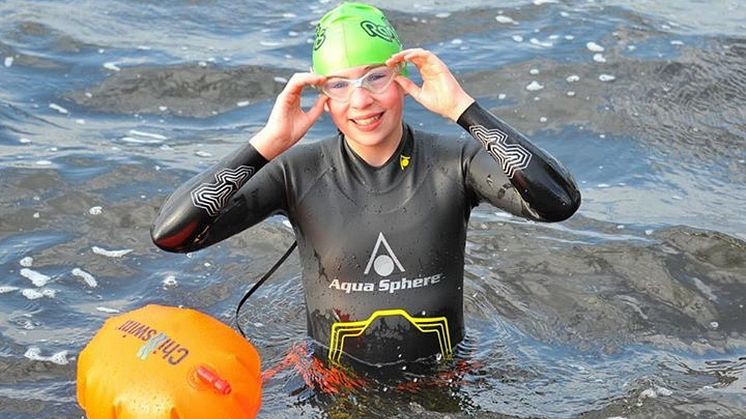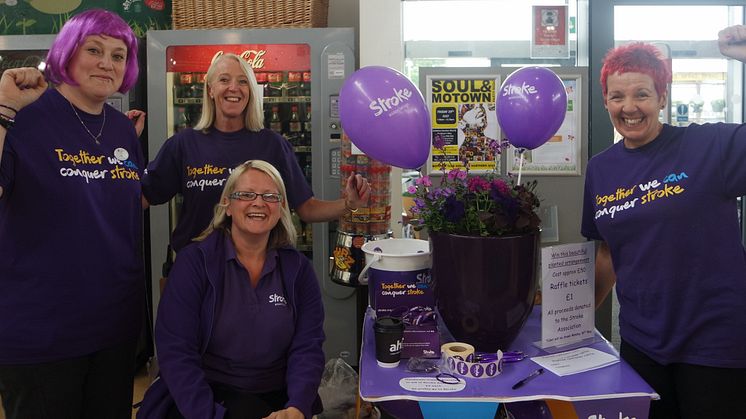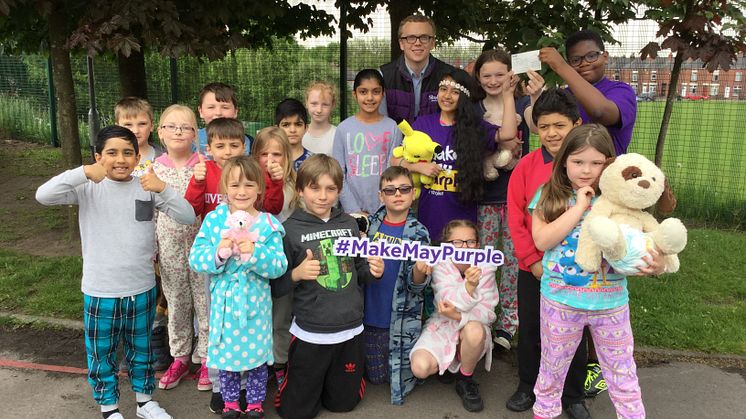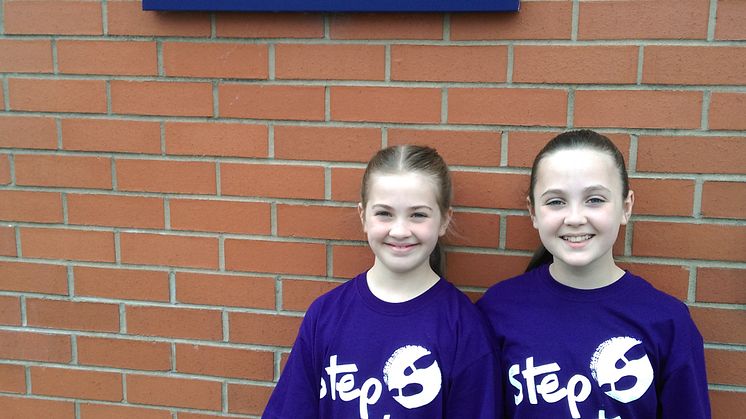
Press release -
Bury Grammar School pupils help to Make May Purple
Two young pupils at Bury Grammar School turned their school purple on Friday 27 May to celebrate the Stroke Association’s annual awareness month: Make May Purple.
The Stroke Association has been calling on everyone to sign up to Make May Purple in 2016. Throughout the day, pupils wore purple clothing, hosted a purple cake sale and took part in purple-themed games.
The event was organised by Olivia Kipping (10) and Zara Kipping (9). Their mother, Rebecca, is a Speech and Language Therapist in Heywood, Middleton and Rochdale for the Pennine Acute Hospitals NHS Trust, and works closely alongside the Stroke Association to support people affected by stroke.
Pupils were also visited by Chris Bainbridge, Life After Stroke Coordinator at the Stroke Association, who helped give a stroke awareness assembly on Thursday 26 May. Pupils learnt how stroke can affect a person’s brain, as well as how to spot the symptoms of stroke, and act FAST
Chris Larkin, Regional Director at the Stroke Association, said: “It was fantastic to see Bury Grammar School turn purple to raise awareness of Make May Purple. This year we’ve been calling on the local community to get involved with our annual awareness-raising event. It’s all about having fun, getting people talking about Make May Purple, and raising vital funds so that we can be there for more people affected by stroke.”
To find out more about this year’s Make May Purple, please visit www.stroke.org.uk/makemaypurple
Topics
Categories
Regions
A stroke is a brain attack which happens when the blood supply to the brain is cut off, caused by a clot or bleeding in the brain. There are around 152,000 strokes in the UK every year and it is the leading cause of severe adult disability. There are over 1.2 million people in the UK living with the effects of stroke.
Stroke Association is a charity. We believe in life after stroke and together we can conquer stroke. We work directly with stroke survivors and their families and carers, with health and social care professionals and with scientists and researchers. We campaign to improve stroke care and support people to make the best recovery they can. We fund research to develop new treatments and ways of preventing stroke. The Stroke Helpline (0303 303 3100) provides information and support on stroke. More information can be found at www.stroke.org.uk











